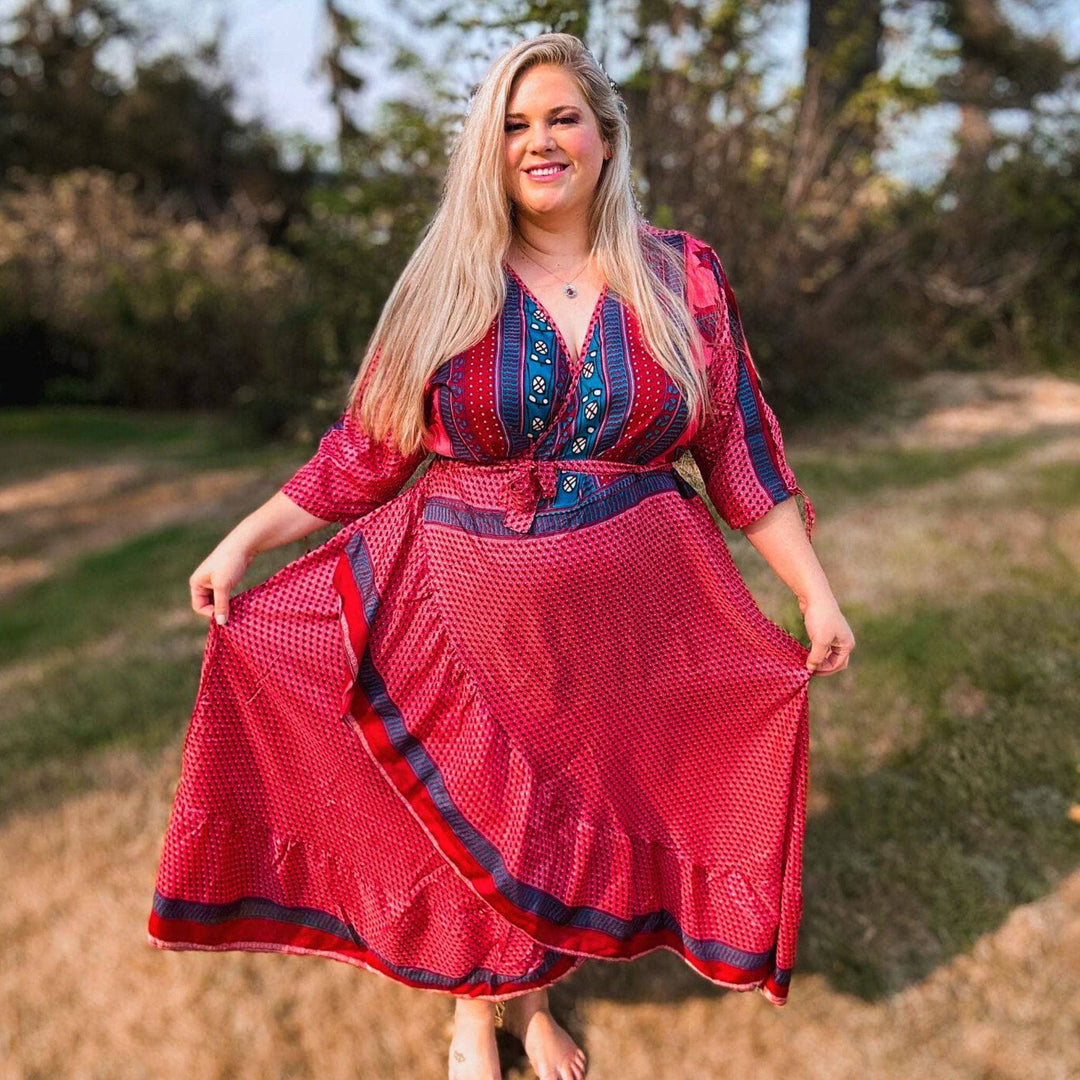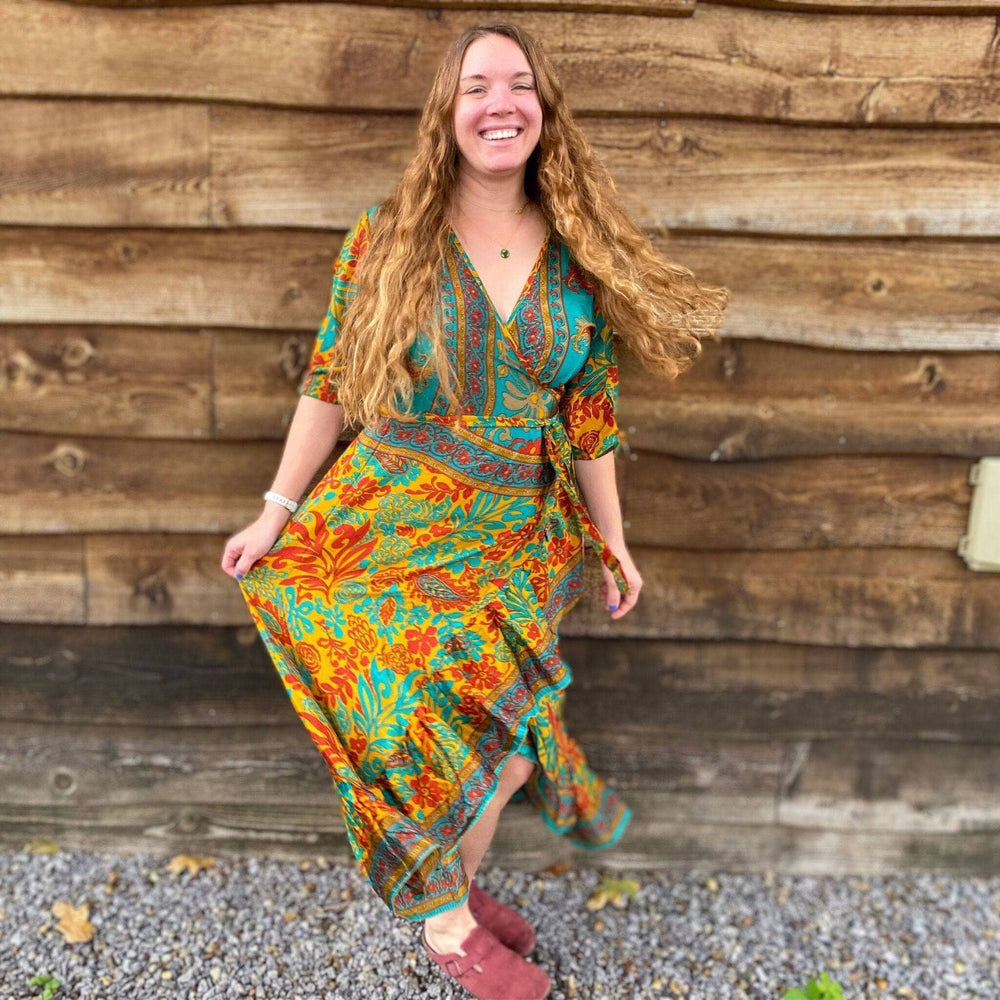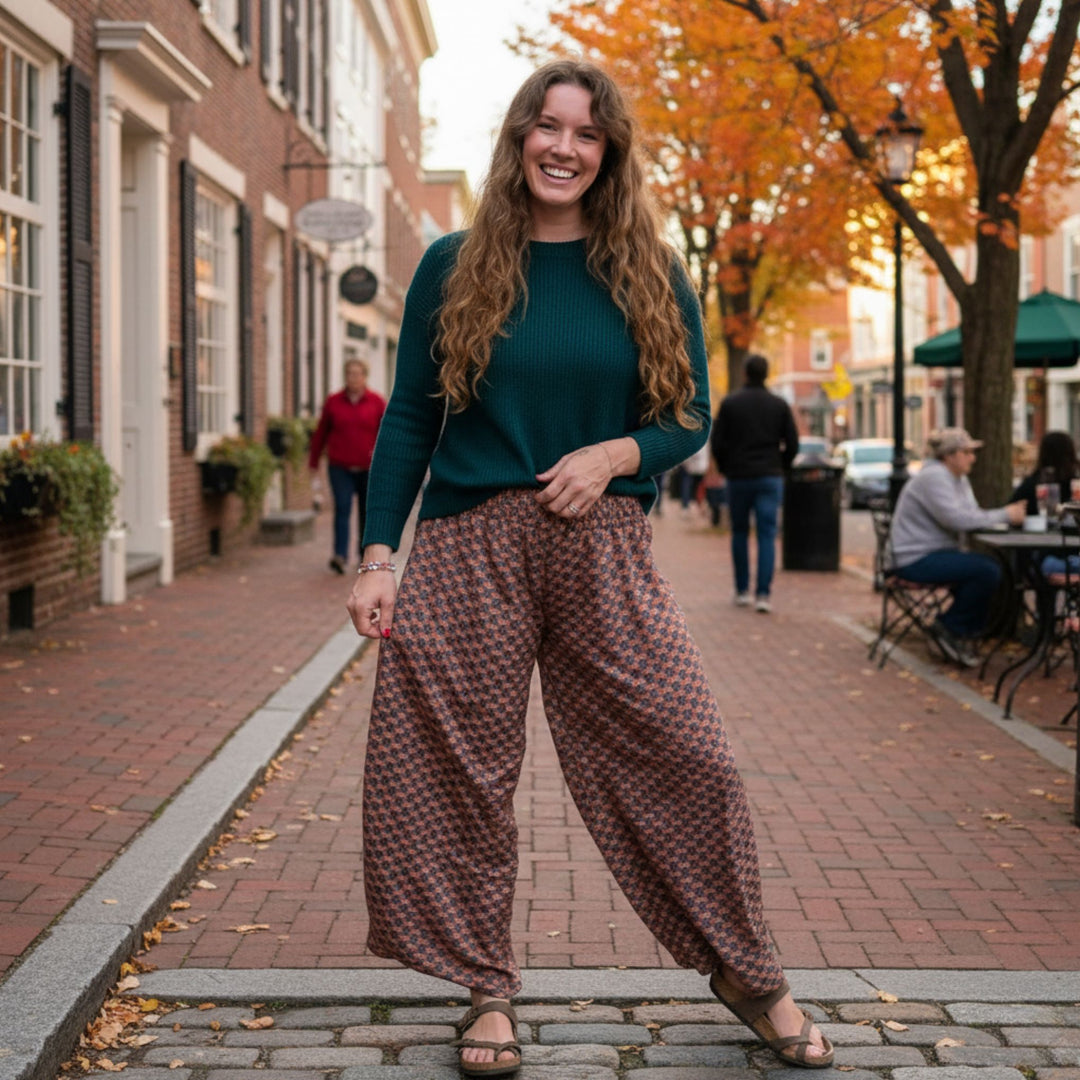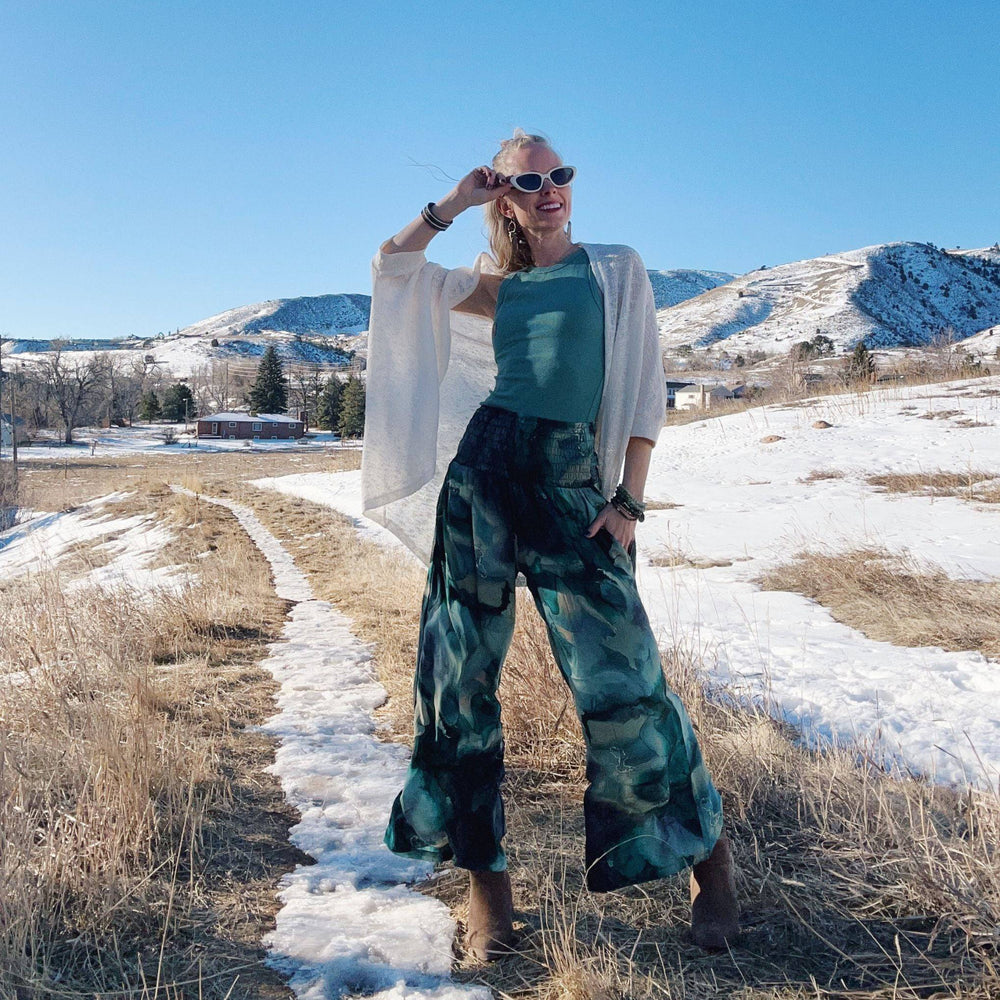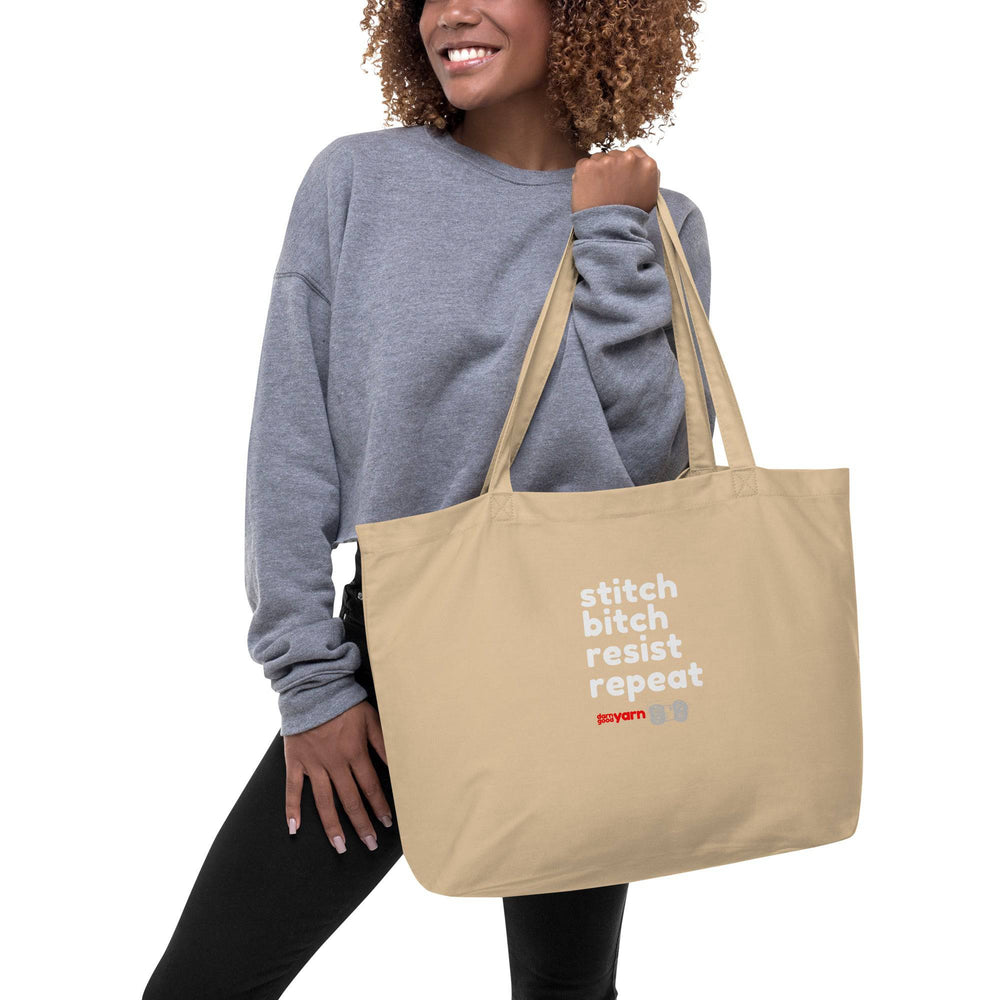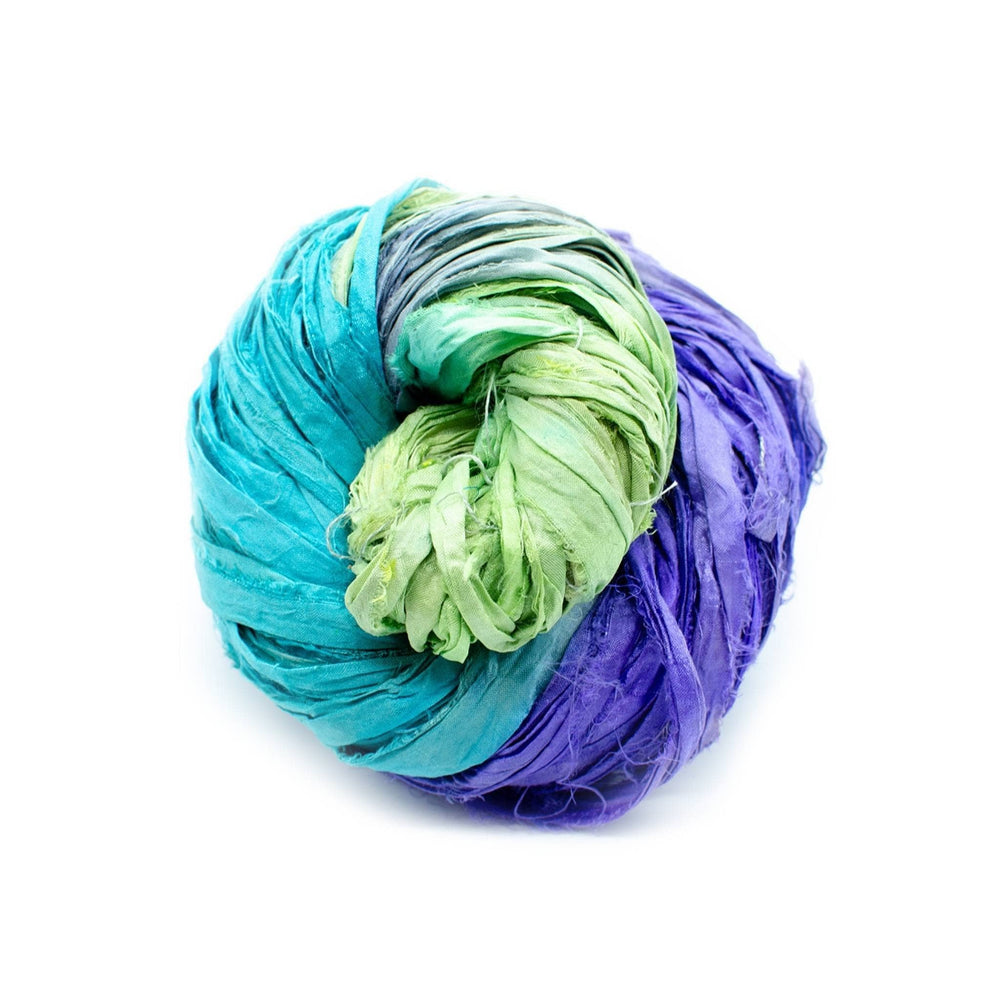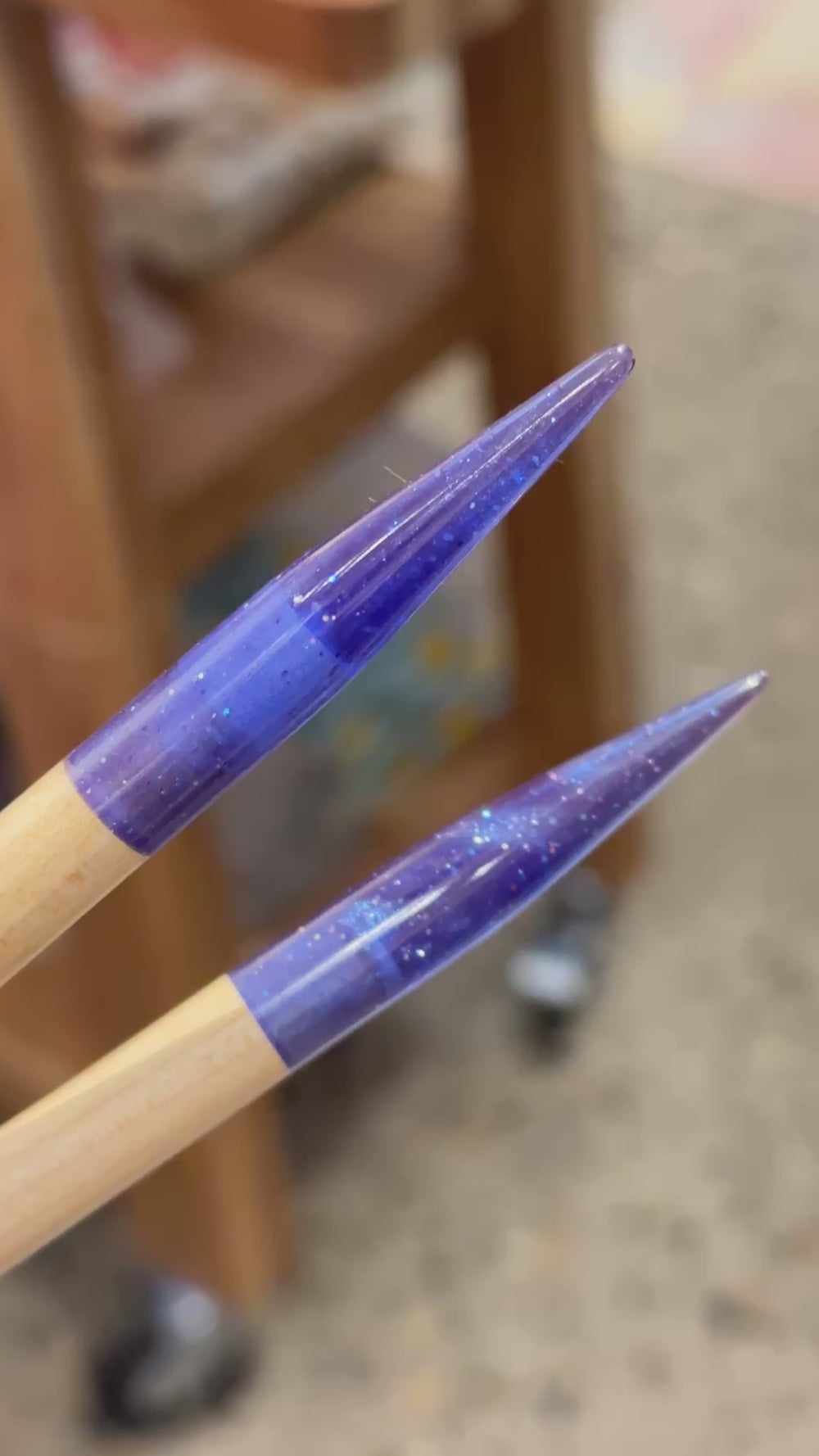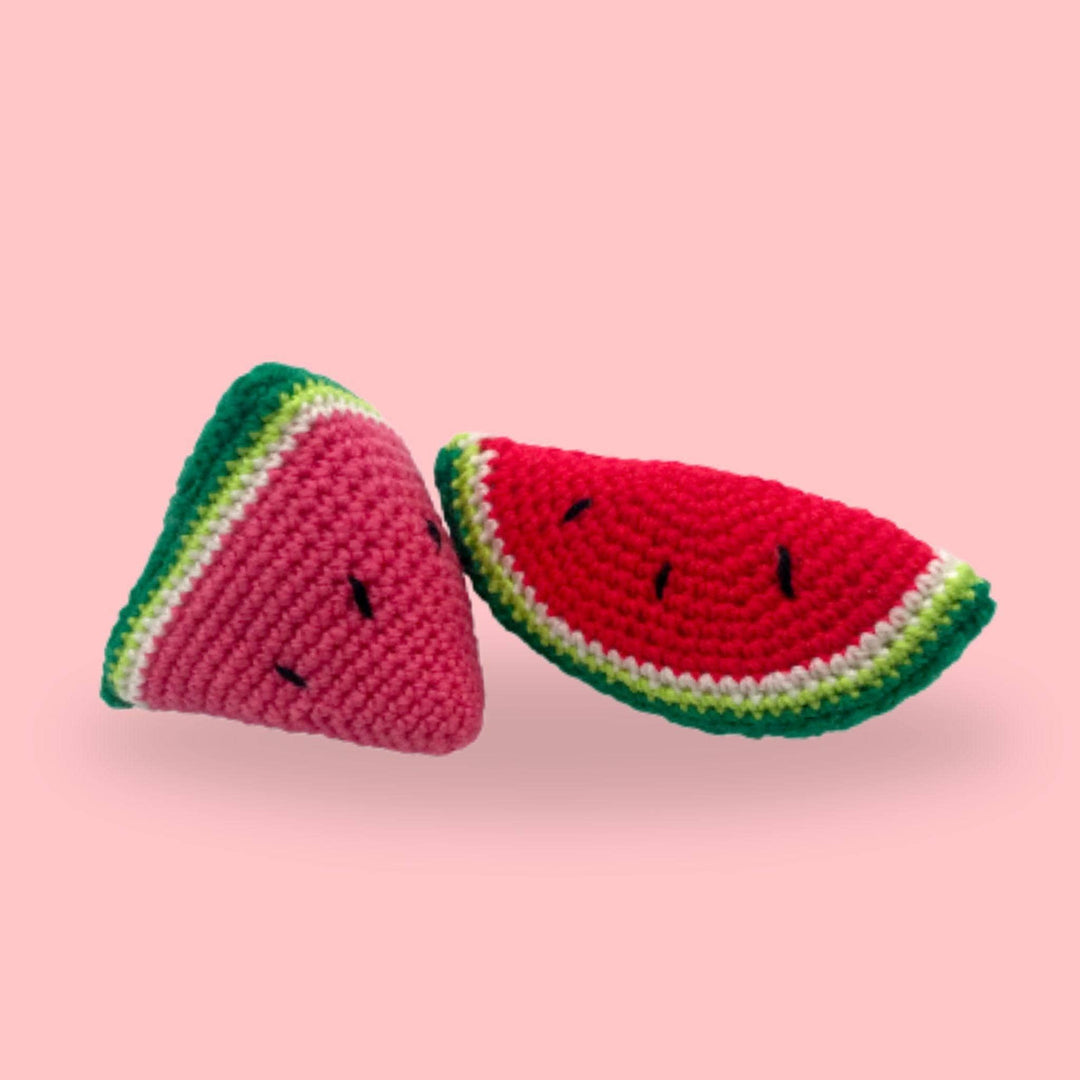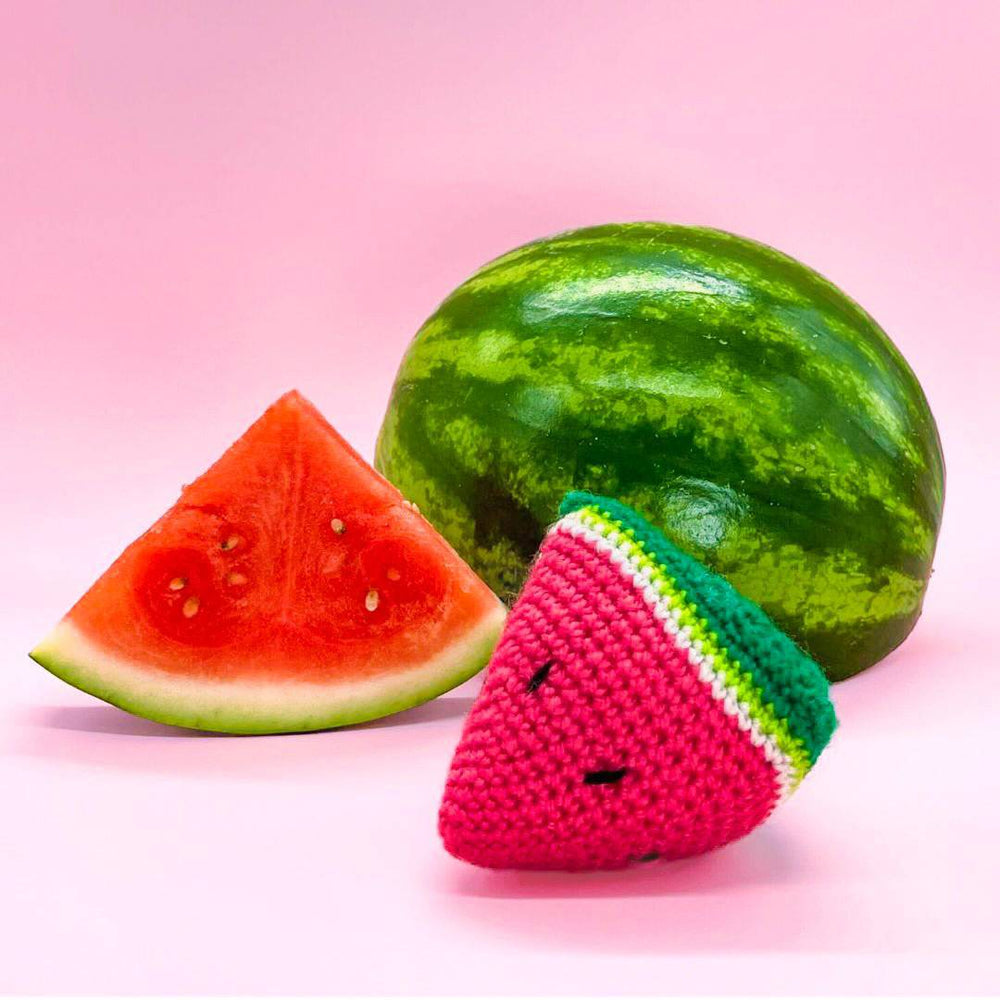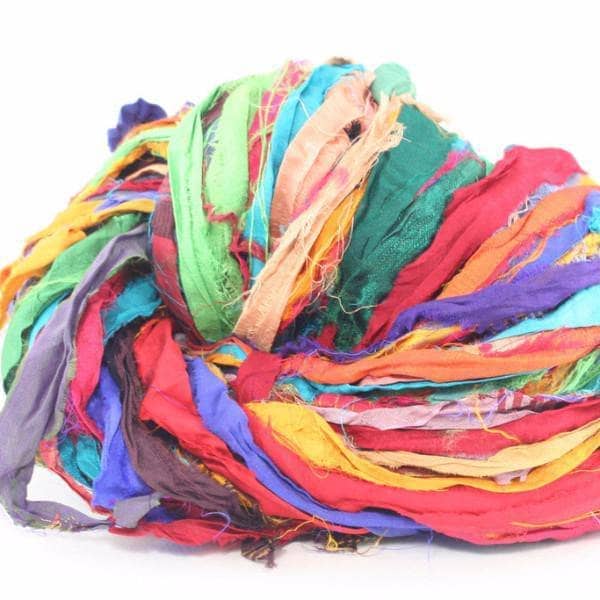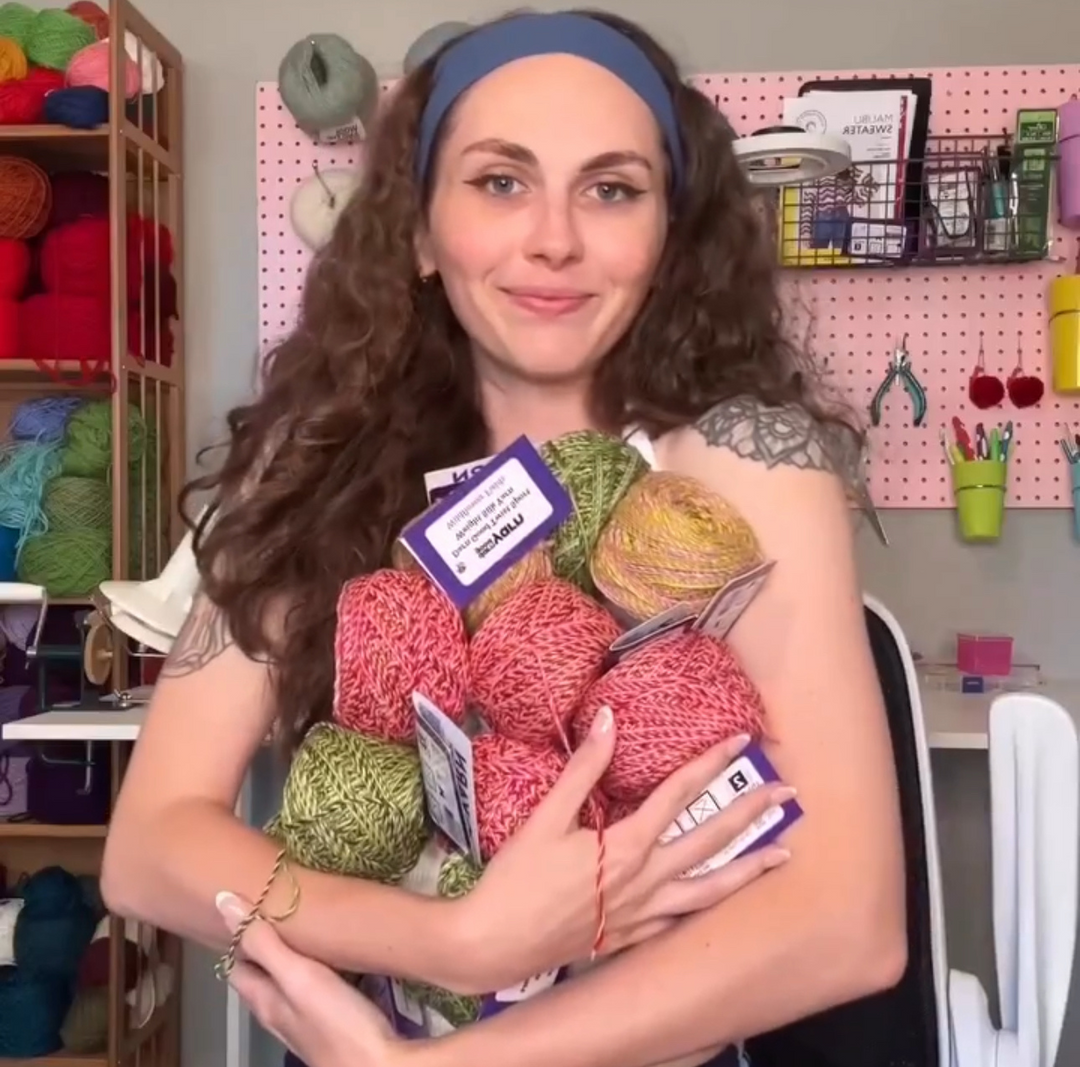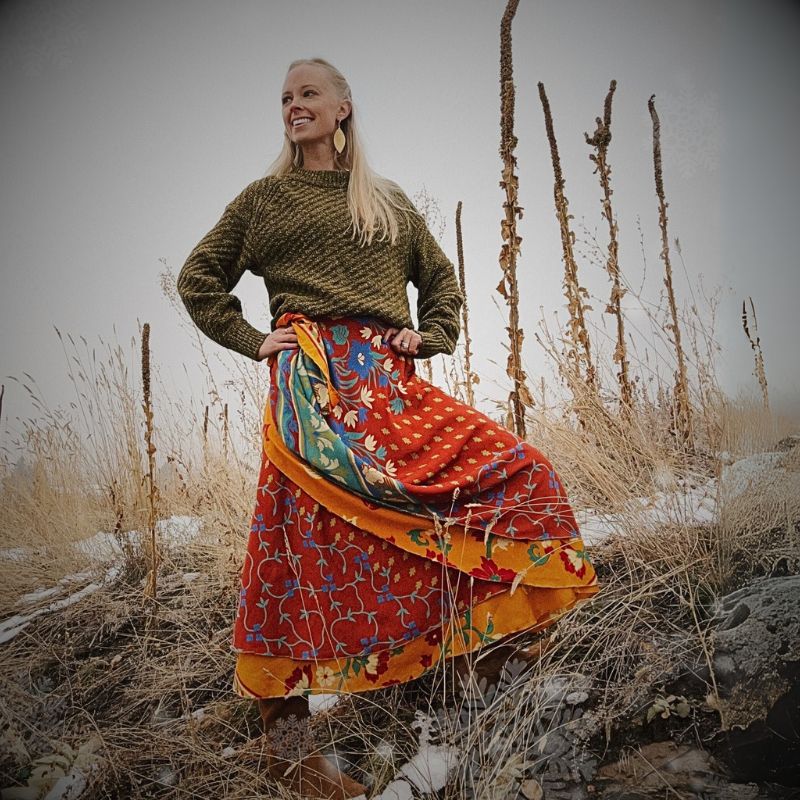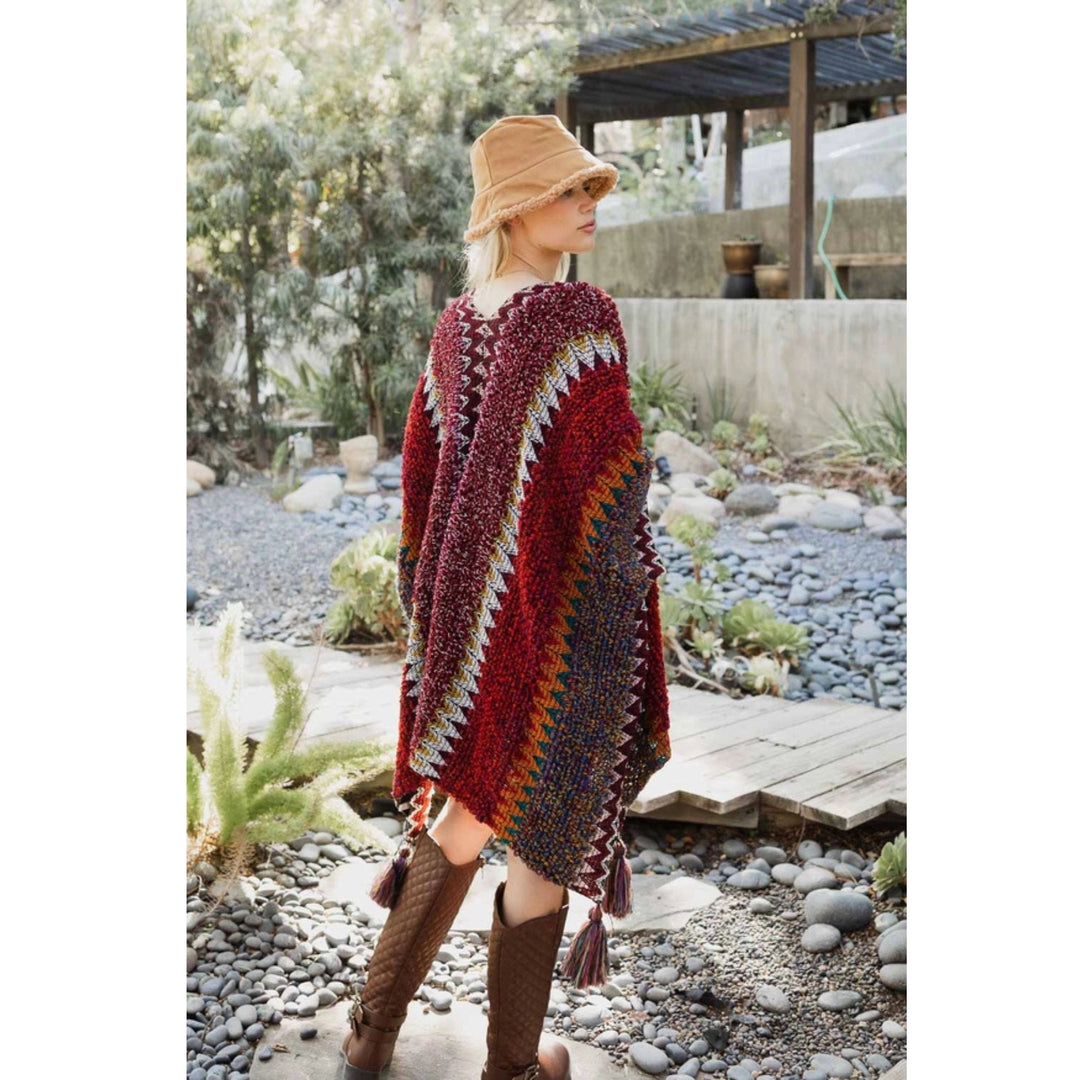Written by Kate Curry
Have you seen what our fearless leader has been up to recently?
Nicole, our founder and CEO, recently spoke with her friends over at the From The Basement Up podcast! This podcast, hosted by Michelle Brandriss and her niece Emily Flanigan, focuses on interviewing entrepreneurs that have taken the frightful leap from a secure job to founding their own successful businesses.
Michelle, who owns the awesome kid’s name label company Name Bubbles, Emily, had an inspiring conversation with Nicole about how she became, in her own words, an “accidental entrepreneur”. Go take a listen to learn a little bit more about Nicole and how she created Darn Good Yarn with the goal of making a stable, sustainable, and safe community!
MICHELLE: Hello, hello, and welcome to From The Basement Up. My next guest is Nicole Snow, a woman who discovered recycled silk yarn and fell in love with the look and the color of the textile. After doing a little, well, probably believe a lot of digging, she discovered the people making the yarn needed a way to make a stable and safe living. In 2008, Nicole began Darn Good Yarn, a company that serves as a bridge to artisans who make beautiful yarns and a community of online customers who love not only the look, but the mission behind the products. Hello Nicole, and welcome to From The Basement Up. I wanted to interview you today because I love what you're doing and I love the mission of your company. It's really... It kind of blew me away when I learned about it and heard about it. So, but the one thing I wanted everybody to know is that you started this business with love. And when you go through your website, it's really apparent and everything that you're doing. And I wanted to know what that means for you being part of your company.
NICOLE SNOW: That's a great question to start on. That's like a boom, let's get right to it. When I started the company, I really classify myself as an accidental entrepreneur. Didn't really quite know what I was doing, and I just knew I wanted to do good in the world. And I think a lot of times people will say," Oh, I want to give back to my community." Or," I want to give back to a greater global good." And the first thing on their list is... Like a nonprofit. And those are amazing. But I grew up in a small family business and watching people level up and go from making whatever or having job instability, and then creating job stability and creating a stable economy where the business works now, I've always felt in my gut, that's where it really is. Because when you create stability... It's just like a family, right? You create stability, and then these other things just start to be side effects of that. I was in the air force. I was active duty air force, with a lot of my training learning a lot about terrorism and on a global scale where it comes out of and what communities are super poor communities. And when you start to really break down what was happening, I was like," People need jobs and people need know they're going to be taken care of by their government. People know..." And then what happens is you get these weird fractional things that wind up taking down the safety and security of societies. So I just sort of went in the dark and figured out and found this yarn originally. And I was like," Oh, cool. It's recycled materials." So, check one. And then because I've always... I don't know if anyone listening are crafters, but we're closet hoarders. I've sewed everything and-
MICHELLE: That's us.
EM: That's us.
NICOLE SNOW: And so I was like," Okay, the recycle thing will resonate with the right audience. And I can use those beads from that necklace that broke three years ago. And I'm never going to throw that out."
EM: Oh my God. I'm literally knitting my first scarf, and I did that. I knit in the beads from my friend's local business that she made bracelets during COVID. So, oh my God, that's... Oh my God. You're speaking to my heart. Keep going.
NICOLE SNOW: So this is exactly it though. So when you think about... So, you're talking about terrorism, something so serious, but then as you think about then, what do people need? There's so many similarities. I mean, COVID really brought that out, very similar immune system, all these other things. And you say," You know what? People need jobs, they need to know that they feel safe, they need to know that what they're doing in the world is important." And I just... This is like love. It's like when you cook something, you put, okay, yeah you have the recipe. So you can say my business plan was a basic recipe out of a cookbook, but it's like the adding the love of," How can we make sure this is something that really pulls together communities?" And that's a very long answer of how I thought about business. It was not like some people do on Instagram, with the Ferraris and the Lamborghinis and the get rich quick kind of stuff. That's really prevalent, but I went like the Dutch oven, low slow cook it, kind of way with business. And it has been very transparently difficult because it's been a slow growth process, but it's been very stable. I've been around now for 14 years. I'm a hundred percent self- funded, my husband works for me. We're truly a family business. I think in a time when there's a lot of private equity money and stuff like that going around, it's easy to like," Ooh, it's something shiny." And we're just staying really true to our laurels. So that's starting with love as well.
MICHELLE: Well, I love this and I think COVID changed me as well in a lot of ways. And it's interesting because you I'm about 15 years old as well in Name Bubbles, and it was interesting with the team here. I never... I was kind of always like," Well we're making labels, we're making stickers." And I actually had an employee tell me, she goes," No, you don't understand. This is the first time I've had a stable situation and it feels so good." And I think that for people starting a business, you don't really think about that so much. And you are creating a community in your building and you're creating a huge community. But that's something I just really want people to be aware of as they build their business, you're impacting a lot of people. Providing that safe happy place to come to is a huge deal. It's a-
NICOLE SNOW: Yeah. It's an interesting... I never wanted to hire anyone to just know that the job was disposable six months later. You're in and out like a VA or something like a virtual assistant, how do we keep you around for a long time? And it feels like a lot of the business stuff I see, especially in social media, please do not get all of your schooling on social media on how to run a business because it's so not-
MICHELLE: It's not real.
NICOLE SNOW: It's not sustainable. And a lot of times it's abusive to the environment, it's abusive to workers. And I remember hearing a stat and it blew me away. Someone who comes from generational poverty, that's a lot of people in the US. They have to be employed for four years full time in order for them to break through that cycle. And think about what that really means. And I think it's like, if anyone's thinking about starting a business... I started with the goal of... I worked with Women in Nepal originally. And I was like, if I can just make 10 jobs there, because cost of living is different, that was an achievable goal, maybe in the US it's only one or two, but if I can just do that. And that was actually my first goal. Because I said if I can make my business become a conduit for sustainable and safe employment, it takes on a whole different, it's not like," Oh, I'm just selling yarn on the internet." And it's exactly what you're talking about. You're not just selling stickers and labels. It's something much bigger. And those are the businesses that make it impacts in community.
MICHELLE: So we might need to come back a little bit because we got in deep really fast, but I'm just... The one thing I noticed too, From The Basement Up is just starting, but you're the third person who has been in the armed services, who has then gone home and created something very special. And I'm realizing, and I really do want to ask, as far as your education and then going into the air force, how long were you in the air force, and do you think that helped shape you going," I need to do more service when I get out."?
NICOLE SNOW: I was in for two years active duty. I actually wound up getting out on a medical because I realized I was dealing with heavy, heavy depression and anxiety, self- medicating the whole bit and I'm super open about it because I went and sought help and it's been a constant... This is in front of me and this is very much a part of me, but I have, instead of going like," Oh, I have this thing," I'm," How can I use this to my advantage?" And it did take a lot of good therapists and medication. It's the combination of those things. And at that time in the military, right? I was a reservist before 911, so we were doing a lot more humanitarian missions, a lot of work in Africa at the time. So that was actually what I was very drawn to, serving my country. And then 911 happened, and then were at full blown war. And I knew what I signed up for. So I don't know necessarily, when I got out, I still was very passionate about helping and serving just other people. Politics aside, I really believe our country is one of the best places on Earth to live. And we have a lot of opportunities and I'm of the mindset," We need to reach our hands out." We have a free economy here for the most part. And how can we help others that have been left behind by their own governments. They can use capitalism to really promote their way of life, again create that stability.
MICHELLE: So I love, thank you. Thank you for sharing that. When people listen to the vulnerability and people opening up we're all so similar in so many ways and people really do appreciate that. So-
NICOLE SNOW: Lot of self- help books.
MICHELLE: Yes.
NICOLE SNOW: Being audible on 2X, I'm like," Self- help book? Throw it my way."
MICHELLE: I get that. I do. So-
NICOLE SNOW: I may or may not have put crystals in my bra at one point. I've tried it out.
EM: Oh, they're around the room right now, just around.
ICHELLE: They're up in my... And I have a little shelf up there with sunshine that comes through and I like seeing what shoots rainbows around room. So yeah, I'm all into everything. So anything that makes me smile and it's not hurting anybody, I'll do it. I've got a little hula dancer, little icon totem thing on my dashboard and my husband just shakes his head. I went surfing once, and so I get to have him.
NICOLE SNOW: It's like the T-shirt.
MICHELLE: Love it. Exactly. But so I know that you are a crafter, you grew up doing crafts and you love it. So was this just a natural? Once you found this silk yarn, you're like," Wow." Or was it like," How is this made?" I'm just trying to figure out, how did that discovery happen?
NICOLE SNOW: My crafting drove my family crazy. It was like, and it still is like that, my God bless my husband, because I have crafts in every nook and cranny of our house. And we just moved to New Hampshire, so now we're in a 215 year old small little house and it's fabulous. To me, I'm like," Ooh, I'm all cocooned." But even in my office here, I'm like," I have partially done yarn stuff there and stuff behind me." So it never ends. I don't know what it was about crafting just from a young age. I made up a lot of things. I was a kid that you could just kind of give me a pile of whatever and I would just create something, it wasn't like I did kits or anything like that. It wasn't that so much. It was... I don't know, whatever. And I just kind of immersed myself in origami. I mean, I think we all kind of maybe went through those phases, but I don't know. It really stuck with me. Then for college, I went to Clarkson University, which is in upstate New York. So it's engineering and business. Great school, but very corporate driven. And I knew that something was off because I would sit in my room and do metal sculpture and sewing. And I remember my one roommate, she was a chemical engineer and it was stark orderly, and mine was like," Hey." And I had no mentorship in my life that was like," A life in the arts is actually a thing." I think the common stereotype is like," All artists are poor or broke and they starve all the time." And I have fear of cash, I come from a divorced family, so I'm like," I need to make cash." So, I think that I didn't know it was a thing, and then when I got married, I wanted to learn how to knit. I already had what I called my Little Tikes, my Fisher- Price business that I started. And I was going to craft fairs, selling home goods. I was able to source from India. And then I was like," I want to do the yarn thing." And I found this really cool yarn. And then that's how the business actually grew. I bought enough of it really, so I could just get the write off. I could get some stuff at cost for me, some yarn at cost for me. And I'm like," No one's going to buy it." So the name Darn Good Yarn was a joke. I was like," I'm just going to put up on the website so I can-"
MICHELLE: I love it.
NICOLE SNOW: And then it was like," Oh my God, this yarn actually allows women to stay at home," and then it just blossomed from there.
MICHELLE: Good for you. I mean, so now you are taking the trip. How did you go from," Okay, now I've got to go to India." And so you're not just... You are the supply chain, you're creating the supply chain for your product. And I don't know, I think you're the... It's very rare, but I mean, it's just amazing. So how did this happen?
NICOLE SNOW: I don't know. When you say it like that, I'm like... If you told me while I was doing, like," Nicole, you're building your own supply chain," I'm not doing this anymore because it's too scary. I think I was just naive enough. I didn't listen to too many peoples, which I guess my stubbornness really paid off in that way. But a lot of it originally was online because I was traveling with my husband who was an engineer, and we didn't see that part of the story coming because I went to Clarkson, but we traveled around for his job. I'm talking every three to six months, we were moving all over the US. So I was starting my business kind of, I always called it, almost like the Wizard of Oz, don't look behind the curtain, because I played wife during the day. I'm like," The dinner's done, the laundry's folded, the house is clean." And then I would go play entrepreneur when he'd be at work. And I said play because I really... I just wanted to offset my expenses as a person, which I guess that's not how marriage works necessarily. But I was just so intent on not being a drag on him. And again, these are like my own psychological things, I guess. But from that I was able to just online, meet people I worked with and I just knew how to ask the right questions that were pointed enough to really understand where they were getting supply from. And then it was two or three years after that actually going over to India. And it was as the business grew. I mean, you have to think the first... So I've been in business 14 years, the first six or seven, I was on my own as a business owner. So the first year I was in business, I did$ 8, 000 in sales. I was working two other jobs and doing the housewife thing too. So it wasn't at this scaled space, when we actually started to make big girl money, that's when I was over there and making the supplier relationships and things like that.
MICHELLE: So that is the... I was international studies major. And I always had this idea that I was going to live abroad and basically do what you're doing. And I never made that jump, how do you make that happen? So I want to know, you meet these people, you're like," I'm going to come meet you and I'm going to see what's going on." And was it that you wanted to scale up? Is that what was going on?
NICOLE SNOW: No, because I never really thought the business was going to grow. I've actually been the worst projector of my business. I'm like," No one's going to buy yarn made out of trash on the internet. No one's going to buy apparel that's made out of trash on the internet." And I've always been this... I don't know what it is.
EM: I'm like,"I'm signed up with the newsletter."
NICOLE SNOW: I actually kind of crosstalk he was like," Nicole, if you were a guy, you'd be bragging like crazy."
EM: I don't know crosstalk.
NICOLE SNOW: I don't want to go man versus or that sort thing. But he was like," A dude to be like," Oh yeah, 10 Xs and blah, blah, blah."" And I'm like,"I'm not that person." Because I always think it's going to fail. I really went over there to just see what else we can be doing as a company to help serve. And is there more medical assistance? Is there more education that we can do? Because I was starting to see cracks once we hit, I want to say maybe a million in sales, there were things that were happening. A perfect example, our yarn would come in not at the right weight and for a crafter that's, you might as well set the ball of yarn on fire, it's useless, because you're doing a project and it needs to be specific. And I realized that they had moved from old school scales with weights to a digital scale and women were illiterate and they couldn't even read numbers on a scale. And I'm like," We need to fix this." So bringing in people to teach literacy and then bringing up the community that way. So there's those kind of other little pieces of the puzzle that you can't get from Skype or anything else.
MICHELLE: Okay. So, and I just want the listeners to know that, you were saying trash, this is an upcycled silk yarn. So I just want to clarify. But it's a beautiful thing because what you've done is you've found these silk products that people no longer want and you upcycle it. So do you mind explaining the process of that?
NICOLE SNOW: Sure. So there's kind of two tracks-
MICHELLE: Actually we'll have the video on our show notes. So-
EM: Yeah. Or I can make a little clip out of this.
NICOLE SNOW: Okay. And then if anyone wants to see it they can go to the website. I also have other materials. Silk is just one thing. Like we have other really cool materials like banana fiber, which actually is the bark of the banana tree that comes off and then it gets boiled and then spun down and it creates these cellulose fibers that are almost like polyester.
MICHELLE: Nice.
EM: So cool.
NICOLE SNOW: We have cool stuff there, we have reclaimed cottons. But for the silk where we started, there's kind of two different tracks. One is when you have really high end pillows and cushions, they are sometimes stuffed with silk. And when that fluff goes in, there's a really high percentage of waste. It just kind of flies all over. It's a really inefficient process. So I have people go in and reclaim. It's called noil silk. And then I can control it enough to control thickness. And that makes a very consistent yarn so this is a hundred percent recycled.
MICHELLE: Beautiful.
NICOLE SNOW: So this is something that you would probably say, this looks like yarn that I've seen maybe in a big box store. And we change the colors on this, we can change the thickness on it. And this is really good for just very standard projects that you're like," I need this to measure a certain way and this is what you would use." And then the other silk products, so these two actually come from the same source, believe it or not. This is a ribbon, and then this is more of a traditional yarn, but it's hand spun. And these are just actually strips of material of the silk sarees. Let me just show you here so you can see.
MICHELLE: That's beautiful.
EM: Yeah.
NICOLE SNOW: And they're hand torn, rip, rip, rip, and then they're sewn end to end. And it was that sewing, watching these women sew and I'm like," You guys are actually great seamstresses." And that's where we got into clothing about six years ago, and that's now about half of our revenue. So again, it's almost a backwards way. It's looking at what their capabilities were and then building the business around the capabilities. And it's not a typical way, I think, to build the business, but it makes it good for everyone. It makes it sustainable for everyone. With this yarn it's this material, but it's shredded up into back down to the fiber and then it's hand spun. So you can see the mix of colors.
EM: That's beautiful.
MICHELLE: It's beautiful.
NICOLE SNOW: It's very similar to what you see here. And what you can do with these, is you can strip out all the color and then hover dye on it. And then you get this, it's multi tonal. So if you dye it green, the purple will never completely, or the indigo might not completely come out. So you'll get like this greeny blue thing going on and it's stunning.
MICHELLE: So cool.
EM: Good. I like too. You said you build it around what they're capable of, but you also build around like what they're capable of learning. You were saying that they were illiterate and then you brought in someone to teach literacy. That's so awesome. You didn't just say," Okay, we've hit a stump. I'm going to go somewhere else." You were like," Well, let's keep it going."
NICOLE SNOW: Yeah. It's the figuring it out. And I think that's the... You can start with profit. Profit is definitely part of it and the concept. If anyone is starting a business, I would encourage you to look at a concept called Triple Bottom Line framework. And it's the idea that, yeah, business needs to be profitable. And I really am a proponent of no margin, no mission. If you can't make cash, like you can't continue to perpetuate what you're doing. And then you really just are a charity because there's a shelf life to it in most cases. With the Triple Bottom Line framework, you're measuring your company's success on three things. So it's profitability and then the people who either are part of your supply chain or who work at your company, how they're being taken care of, their longevity with your company and then the plan, is there their pay? And that's looking at, what is my actual impact? Am I just flipping something on Amazon that I'm getting and it's really environmentally hard on the earth or is it something that's very thoughtfully sourced and we're using scrap material that's not adding to the fast fashion issues? And could the craft industry,$ 44 billion industry, but that's kind of the shadow fast fashion. I don't think people realize, if you go into a big- box store and you look at the back of where these things are made and what's actually in them, like glitter, for example. We all love glitter. It's terrible but crosstalk So it's this kind of leech on the fast fashion movement. And I think it's prime to be changed as well. Just like a lot of other industries.
MICHELLE: Yeah. Well, it's interesting because I was not aware of that. And that's a new thing for me. Just kind of... And I know that you sell clothes a lot online.
EM: I do. So my whole thing is sustainability too. If I ever start a business, it will for the environment period. So I, a couple years ago when the whole fast fashion revolution thing came about, I swore off, I'm not going to name drop all the stores, but I started selling my clothes and only buying my clothes from secondhand, so.
NICOLE SNOW: That's awesome.
EM: Thank you.
MICHELLE: And it's interesting, but I mean, you were saying over a million pounds of material you've upcycled.
NICOLE SNOW: Yeah. I think it's like we're at 2 million right now.
MICHELLE: Wow.
EM: That's awesome.
MICHELLE: That's amazing.
EM: Imagine if everyone did that, what you guys are doing.
MICHELLE: Phenomenal. I mean-
NICOLE SNOW: I think there's so much opportunity and I get so excited. And I meet crafters and stuff, that want to start their own business and they're doing their thing and I say,"That's great," because that's where I started. Again, starting with love, how can you just add a little bit more? It's going to definitely be harder. Trust me, I could have not picked a more difficult thing to sell online, because our skirt are one of a kind, and I just go like," We're killing ourselves here, it's really hard." I can't just say this is exactly the yarn you're going to get. And in the world of the internet people, you can look up reviews. There's something that ripped as a new one.
EM: Oh gosh.
NICOLE SNOW: Not our customer's. So-
MICHELLE: I get what you're saying. We have to be able to print the same label three years later with the same colors. So if printers change because things evolve or ink changes, we are in trouble. Completely understand.
NICOLE SNOW: It's crazy. But I just encourage people. So what's the little extra thing though that you can do to add into what you're building. So if you're manufacturing or thinking about starting something here in the US, can you hire someone that's maybe at risk or has maybe an intellectual disability? There's things that you can do to just build into it. And it does seem a little bit harder, but it makes the whole microcosm of your business amazing. That's" Yo, okay. Yeah. Go work for a company if you want to go make money." But if you're doing this for yourself and you want to leave an impact, that's to me the way of running a company.
MICHELLE: Yeah. And, and you're making the world a better place and at the end of the day, that's the mission. That's what's getting you out of bed. That's what's getting you excited. So, one thing here I did want to point out is the Yarn Of The Month Club, and reading into that, I wanted you to explain why that's so important.
NICOLE SNOW: Yeah. So$ 10 a month, if you are interested in yarn, it's great. It's our most important product because the subscriptions are awesome, it allows a customer to just experience something, usually at a nice discount, like it is in our case. And then we also have club perks to that, like discounted shipping and fun things like that. But then what it does on the side of our supply chain is it just creates consistency. In the world of... If you think about typical retail, you open the shop up you're like," Okay, I hope the website works today." But having the consistency of a subscription, again, the customer knows that every month they're getting this great yarn, but then on the other side of it, it's also then supporting back to individuals. So for every hundred subscriptions that we have, it creates one full- time job over that period. So it's such an easy way to again, create the sustainability and jobs in these areas that, I mean, can have up to 10% unemployment, which, you think about that in the US, it would be unheard of.
MICHELLE: Definitely. So some of the benefits, and I know that you're really enticing your customers to kind of come into the Yarn Of The Month Club, it seems like you're building a community in there. Looks really cool. Some fun tips and details and different projects as well.
NICOLE SNOW: You say community, I say cult. So inaudible
MICHELLE: You're smiling, I love it.
NICOLE SNOW: Look I'm like," We're going to have caftans, no one has to wear a bra." I have it all my little darned good cult. It's the church of Darn Good Yarn. I mean, who wouldn't go to that?
MICHELLE: I love it. That's great. You know what? I love caftans, I have to say, like in summertime, I'm in my caftan all the time, it's-
NICOLE SNOW: We're the bomb.
MICHELLE: Yeah. So it's kind of my excuse to be out by the pool, but really I'm really just in it a lot. So I have a couple of them, absolutely wear them all.
NICOLE SNOW: I love it. I love it.
MICHELLE: And I did want to ask, how many employees do you have working in India? And I know that you work with co- ops and I wanted you to explain that a little bit.
NICOLE SNOW: Yeah. So at any given time, it can swell up to 600. We're usually around 400. As we ramp up into say, holiday buying, we still have these small communities where we'll have sewers and they're working in their house, and if we have an increase of order or maybe we're consolidating a sea freight shipment, we'll just kind of fill it out and then it'll be extra hours for them. But the way it works, that I have... They're small business owners in India, they have their export licenses and they're small businesses and I'm working, coordinating with them. But in most instances I am their largest customer. And I've been with... I mean, my main, what someone would call a vendor, I've been with them over a decade at this point. So it's like they're really extensions of what we're doing. And again, I think because we do have so much understanding in around what the recycled product really is, it allows us to just have a very functional relationship. There was a larger brand that tried to step into our world a couple of years ago and I got tipped off luckily and was able to outmaneuver very quickly. And it's those sort of things that it's all the small businesses working together.
MICHELLE: Okay. That's scary. Absolutely.
EM: Yeah.
MICHELLE: Yeah. So I'm just-
NICOLE SNOW: I had to go a little Tony Soprano.
MICHELLE: Good for you.
EM: Yeah.
MICHELLE: So-
NICOLE SNOW: I'm from New Jersey originally. So I guess, I don't know.
EM: Quite easily.
MICHELLE: Hey, you're going to make sure that these people are getting a safe to work in, and that was something I wanted to ask too. How did you find your business partners that you agreed with and you found that common moral ground with them?
NICOLE SNOW: It was kissing frogs. I mean, there's vetting. And I think there are mistakes, people say get back up when you make a mistake. It is, you get some people and you're like," That price is too low for what it should be." Or you could... I was also able to tell, when I would get the packaging in, how perfect it was. And there's so much you can tell. And I think it's those weird little details. I think if you're super empathetic and always trying to people please, you probably have a really good eye for it. It's a lot out of trial and error. There are good people. I didn't go in going," I'm never going to find anyone." I just had faith in the process. I knew that there were other business owners out there like me, that they want to take care of their own country people. And like," Let's just figure this out and work together."
MICHELLE: I Love-
NICOLE SNOW: It didn't happen overnight though.
MICHELLE: Oh, sure. It's a process. Absolutely. And you also have something called The Darn Good Fund, and also about planting a tree, and Do Darn Good. I love how you're using darn good in everything. It's so fun. So I was hoping that you could tell us about that because, I mean, I'm going on after this and I'm going to be buying a skirt just because I'm like," I love this."
EM: I'm joining the Yarn Of The Month Club.
MICHELLE: I love everything... I know. I love everything you're doing, but I definitely want to hear about the tree and the good and all of that. All the love stuff.
NICOLE SNOW: So yeah, our Darn Good Fund is our way of... It would be easy for us to write a check to a nonprofit and go," Okay, here you go. Use that." And I get these organizations do so good. But again, I go back to... There's a book called World of Three Zeros, and I really encourage anyone who's interested in the Conscious Capitalist Movement and Triple Bottom Line to read that, because it talks about, again, going back to create sustainability within these small societal circles. So the Darn Good Fund is sort of the offset to help with anything that's not being... I mean, we all have our bills, right? And then you're like," Oh, I have to pay for kids college. How am I going to do that?" And when you're working, you think about hourly wages. The thought of sending your daughter to college or the thought of having her get married off, you're probably going to choose the thing that's been done generations before you. And to really see that change is to do the things. Going back to terrorism, not having education, not having the food, not taking care of the women and minorities within that society, that's where trouble starts to happen because the thread of the fabric of the society starts to then get tattered. So when you can kind of help rebuild that and backfill where maybe that's been taken away because of socioeconomic status, when we say," Okay, we're going to pay for your daughter to go to school," that then lifts the whole family up. And that's, again, that multi- generational, it's a slow shift. And that's why you can't... When I heard that big company was moving in, I knew it was going to be a pump and dump product for them. They were going to do it. They were going to beat up this supply chain and then they were going to be gone in two or three years. This takes a long time. And so what we do with the Darn Good Fund is, for example someone... It's not like they have Medicare Medicaid, or a lot of our social services that we have. So we had someone that needed eye surgery recently. So we paid for that. And so it's just an offset of a portion of our profit that goes back to something dedicated, or during the really major, second wave of COVID in India, we took the funds that we collect from the Darn Good Fund and used it to ship back two pallets full of PPE that we had. And then we are corporate sponsors of trees. org. So we have certain products that we mark and we try to do it almost like a carbon offset. So we have wooden yarn bowls. So then that's an offset that we decided internally, we're going to have a tree planted for that.
MICHELLE: Nice. I love the offset. So that's-
EM: That's just so conscious, every step of it.
MICHELLE: Absolutely.
EM: Very intentional.
MICHELLE: So, you've been so open and you've kind of been explaining things as you go. I love the fact that you are married to an engineer. Does he help you kind of figure some of these puzzles out here and there?
NICOLE SNOW: He came to work for me three years ago. He does a lot of the devs. I can't say enough good things actually, because he also takes... I have a five year old daughter. He helps on the development project management of the website. We're married. We married 16 years and I want to have another 16. So there are somethings strategically, he would be a perfect COO, but I want to have a marriage. And if we try to just keep it separate, I will tell anyone though, if you work with your spouse, even if you are in separate departments, because of course we still overlap and there is not a dinner that goes by where we're not talking about the business, ever. I talk about the business nonstop. I really recommend this just as an experience here, keeping on retainer, a marriage counselor, ideally someone who has had small business experience, no joke because I kissed a lot of frogs in the therapy department and the understanding of the dynamics of what it means to own a small business, like" If we don't do this, we can't make payroll next week.`" That's the stress we're actually dealing with. And if we don't, I'm going to have to write a check off of my personal line of credit to make this happen. I think every small business owner's been there, but now when you have two people in that boat and you're like," Oh shit, we need to make this happen," and there is that real stress, it can skew things. I've definitely had my daughter say to us," It sounds like you two need a friend break." You have to be conscious about bringing that into your family.
MICHELLE: I love how she worded that.
EM: That's so mature.
MICHELLE: Yes.
NICOLE SNOW: She's our... Yeah.
MICHELLE: I love it. Well, I'll-
NICOLE SNOW: I don't know where she came... I do know where she came from, but she's pretty crosstalk
EM: She's the counselor you have on retainer.
MICHELLE: Well, it's funny because I'll be honest, I never once considered bringing my husband into the business. And I actually do go home and we have dinner every night and we never talk about the business. So I do have that break. So-
NICOLE SNOW: I couldn't imagine.
MICHELLE: Yeah.
EM: We were joking at a dinner a couple weeks ago because, I don't know if you hear about The Real Housewives or whatever, this is so off track, but basically two separate Housewives in two different cities are being arrested for fraud.
MICHELLE: Oh they inaudible
EM: Yeah. One of which is saying that her husband was doing a bunch of things that she had no idea. We're throwing shade at her at dinner and Dave is sitting there like," I mean, I don't know what goes on at name levels at all." He's like," That would be me."
MICHELLE: I'm like," Don't worry. You're fine."
EM: You're not going to jail.
MICHELLE: We have a great accountant. We're good. Yeah. No it is quite funny. But good for you that you had that ability to intertwine it because you're living your mission. You really are, in everything you do. So I don't know how you would be able to do that without having him on board.
NICOLE SNOW: There have definitely been times that the business is not the best topic to talk about. I mean, we went through COVID and I joke, I'm just happy to still be standing, but it was very serious. Everyone's like," You're a craft company you must have did so well." I'm like," No, the big boxes did well because they had more cash to spend on advertising." We were just like," Let's stay open, let's keep the warehouse open." And I remember it was the intensity of it and-
MICHELLE: And your supply chain and the people making the product.
NICOLE SNOW: It was gnarly.
MICHELLE: Oh, yeah.
NICOLE SNOW: It was gnarly. I was going actually back through my notebooks, cleaning things up, and during COVID it was almost traumatic to read it, just what the company was going through and how I was trying to just figure out the the next step for us.
MICHELLE: Actually, Nicole, that would be a really cool story to write. It really would be. I think businesses or even teachers would like to teach that.
EM: Yeah, and anybody.
MICHELLE: Yeah. I'd be interested in reading it because you truly had a supply chain half a world away that you had to keep healthy.
EM: Yeah. And I had a question about that, especially with India and the waves of the pandemic as badly as they hit, how was that?
NICOLE SNOW: It was hard, it was actually horrible. There were times, because we're dealing with people that are generally, and I don't want to get too political about it, but we're dealing with individuals, our artisans who are generally lower castes. And you can't say," Oh, caste system is bad," or whatever. You could say that we kind of have that in our country, we just don't actually talk about it. There were times where there was martial law, you had armed soldiers in communities, a lot of stories of men only getting vaccination and not the women, really heartbreaking, how was this 2022 or 2021? And it wasn't all great, we had people that got really sick and we just did everything we could, like again, sending the PPE back that we had, because a lot of the villages we work with are remote and they were last to get... It's like upstate New York when Manhattan kind of sequestered all of our PPE at the first wave, and we were like," What about us? And who's going to backfill that?" Not as severe, but the analogy is there. Yeah. Things were just shut down and I remember us planning our inventory. I said," Man, we might not get a shipment for another six months. We I kind of just have to make this last." So in some ways, the slowdown of our sales was kind of okay, because it probably allowed us to sustain, even though my CFO was like," Dude, we have a major cash flow issue." And we're still recovering from that. I think that's how we stayed open because we didn't have to put the pressure on them, like we need this shipment. It's kind of is what it is.
MICHELLE: Yeah. Well, I mean you embraced it, sounds like in a very balanced way, in mindful way. Just going," I just want people to get through this safely." So-
NICOLE SNOW: Yeah. Yeah, it wasn't about, I mean, we weren't going to make money through that. I mean, again, I looked it all and I wanted to punch people in face. Like," You must be doing so well right now."
MICHELLE: You're like," No, actually thank God no one's crafting because-"
NICOLE SNOW: Yeah. I mean, a lot of people were crafting they just weren't using Darn Good Yarn, which was okay, fine, good. Because I needed that inventory to get into... Because what happened when we got to holidays, I had my stock, which I was then able to move through and that's exactly the way it worked out.
MICHELLE: Wow. Well it's almost like you've been in business for a long now, so you know the cycles, you were able to kind of see ahead and plan for it too, as much as you could, I guess. So, yeah. We had some, not... Obviously 3M supplies are our labels, that's the material we use, and they definitely had huge short. So yeah, it was scary. It really was, just getting through. But we were shut down like you for those six weeks and then kids weren't going to camp and school. So that first year it was really slow. Definitely. And part of that was fine because the supply chain for us had also slowed down.
NICOLE SNOW: Yeah, I look back and my lesson, usually I would white knuckle things and try to control the out of it, and I felt like I was surfing a very hard wave. Not that I surf, but if I just imagined that I surf, I just imagined it like that. We're just going to ride this for what it is. And it almost taught me to not worry into the future. Of course you're still going to plan as an owner, but you kind of just take it. And then you're like," Okay..." And I started to rely on... I did evolve as a leader where normally I was always catastrophizing in my head and I was just like," You know what? I can kind of deal with any... Give it to me and I know I can react to it now." I got a better faith in myself. Am I still going to make the wrong decision? Sure. But I'm not freaking out about it as much. I've learned it's not COVID. We're getting to the other side of it now and come on... I don't want to say," Bring it on," like you say- crosstalk.
EM: I mean-
MICHELLE: Don't to that.
NICOLE SNOW: ....it was a really interesting transition though. An evolution, even as a company. It's like," Okay, this came in wrong? Let's deal with it. Not a big deal, moving forward."
MICHELLE: I love that. You're so resilient. And now you know, you're like," I'm tough. I can handle this." So, good for you. I love that.
EM: And for both of you, having been a small business owner for over a decade before having to deal with an unprecedented literal pandemic, what the heck, that was... Nobody could have seen that coming. So that's the confidence crosstalk.
NICOLE SNOW: And I kind of just want to add on too. So, again, thinking about people who are listening to this podcast and thinking about starting a business, you probably were home. If you have kids and you're a mom and you were running the school and in doing all of that, you were running a business.
MICHELLE: You were, yes.
NICOLE SNOW: But you were doing it day to day. And that's where I'm always... I interview a lot of people for jobs and it's so interesting. Again, I do see trans male, female sometimes. And we don't give our ourselves enough credit. You can manage the shit out of stuff. If you can manage your kids through COVID and keep your house running and your family fed, if you're doing more of that role, but I think women got that kind of re added on, this isn't part of their world, it makes you a project manager. It makes you a cost analyst. It made you all of these other things that companies really freaking need. And I joke, like we have some roles in our company and I'm like," This is the mother of this. I just need a mom in this position to kind of knock some heads around." And they wind up being the best employees in that way. So I encourage that. If you're on the fence, you probably have more skills than you need, it's just putting that different filter on. I think if I had more mentorship around the artist's side of things, I would probably self classify as an artist. But then when I think about my business, I'm just using a different set of paints. I'm not using paint, paint, I'm using business paint. I'm using the little this, a little of that. And that's how I'm kind of creating my work. And I think that's an opportunity to apply the different filter from domestic or at home to starting your own enterprise.
EM: I love that.
MICHELLE: So well said. And thank you for sharing that. Absolutely. And I completely agree. I feel like we definitely underestimate ourselves as women and I love that you just shared that. Where do you see Darn Good Yarn going in the next 3, 5, 10 years?
NICOLE SNOW: I gave my landlord notice, I have a 12, 000 square foot warehouse. So I have 18 months to build the warehouse.
MICHELLE: Holy smokes. That's great. Congratulations.
NICOLE SNOW: I'm scared shitless a little bit, but it'll be okay.
MICHELLE: Of course, it will. Oh my gosh. You've dealt with more crosstalk.
NICOLE SNOW: Well in case, we'll just get a whole bunch of storage units. I mean, if you're in the Central New York area, I mean, they're around every corner, they're next to every Stewart's. And if you're listening from someplace else, Stewart's is the gas station everywhere. It's ubiquitous. And there's usually a self storage unit right next to it. So we're either renting out of there or I'm going to have a brand new, beautiful warehouse. And my vision for the space is part warehouse, but almost as if you were to go to a winery or a brewery and you can see the operations through glass, I want to have that experience to just sort of see an active live warehouse because it's, I mean, it's really cool. When we get a 40 foot container in of yarn and you're just seeing these fels come off and you're ripping them open. I mean, that's fun to watch.
MICHELLE: Sure. And they're beautiful.
NICOLE SNOW: And then the additional plan is having a community area. So, I think people think Darn Good Yarn, and it's unfortunate that, again I named it as a joke because I didn't think it was going to be anything, but we offer so much. And I think the word lifestyle business gets thrown around a lot, but we really have morphed into a lifestyle business. We have customers that come to us for craft supplies, then apparels, some home goods as well. And there is a bigger call for that community or cult, depending on who you're talking to, of women just looking to be empowered and tap into their own personal creativity as a form of self expression and even mental health. We joke about craft therapy and art therapy. That's a valid thing. I mean, my crafting has helped me through depressive episodes too. So, that community center will house not only, of course your knitting classes, weaving classes, things like that, but bringing in more holistically minded classes. So your yoga, doing sound bath sessions, things like that there too. And then if my COO lets me have it, I want an atrium with an indoor garden with plants in it that would be used for dying, so we can do dying classes on site.
MICHELLE: Oh, neat.
EM: That is so cool.
NICOLE SNOW: So Kat if you're listening, please.
MICHELLE: Please allow me to have this crosstalk. That is so cool. So, you have these high end knitting stores around, do you see Darn Good Yarn going into those stores?
NICOLE SNOW: Yeah, we're revamping our wholesale program right now, so I'm redeveloping it from the ground up. I used to manage it on my own, and then, I mean, I think like any small business, you hand something off and then you're onto the next fire. So I'm actually in the process of restarting that whole program. So we're bringing on some direct sales people and building up the technology behind that. Wholesale for me used to be about half of my business and I let that go. Shame on me for that. But there's an opportunity again.
MICHELLE: Absolutely. You can reinvent it and make it better. So, yeah. I agree. It's not lost. And that is, I don't know. It's such a cool thing. I really, I love the mission of what you've done and it truly is amazing. And it's a beautiful product. It's absolutely gorgeous.
EM: And like you said, art therapy, you kind of threw that in there, but it totally... Everything about your product is art therapy from the beginning of the supply to the end of when the project and the craft is done, it's just awesome.
NICOLE SNOW: It's like if you cook, right? If you're really into that and you think about the Farm to Table movement, that was a thing because your food does actually taste different when it's made, when the farmer gives a shit and then it goes all the way to your pot, it does really make a difference. And I think fiber art in particular, that is... Before the industrial revolution, people made their clothes. This was very much a part of who we are as humans. And I think that's why the maker movement and why people did craft because it's, you think about what we touch all day, it's glass, it's plastic, it's all these man- made materials. When you get back to crafting it does do something with your brain and it gets back to this primal sense and it kind of centers you and brings you back down to earth a little bit, like not being in your phone. I'm naturally introverted, I need my craft time. And when I really just bought into that, I'm a happier person. I did want to go back to talking about wholesale. Again, people who are starting businesses, a really good resource I use and it's free online, it's called the business model canvas. And if anyone's not familiar with it, it's a very visual way to almost do a pre- business plan. So there's squares you fill out and there's a... You can YouTube how to use the business model canvas. And then I think if you look up free tools, there are free tools online to build your own canvas or you can just write it down on paper. I love my paper, so I'm always doing that, but the idea there and one of the sort of modules that you fill out, talks about channels. And I would tell you that that's probably one of the reasons I was able to get an escape velocity. I think often time I see people starting out and they're like," I'm just going to sell craft fairs, I'm just going to do this." You have to really think about the whole system together. Because when I got wholesale working, it fed my retail and it fed these other things. And when something kind of slumped, if wholesale slumped, I still had these other things going, otherwise I would've been sunk. So it is important, I think. And I don't think it's really held up enough. You can't just do one channel. You have to think multichannel.
MICHELLE: No. And thank you again for sharing such great information. And I do want the listeners to know, I mean, your business has just, I don't want to say exploded, but just growth. The growth year over year. I mean, you continue to make, what is that? Is it Forbes 5, 000?
NICOLE SNOW: I think 5,000,
MICHELLE: In 5,000. Thank you. So five years in a row, the last five years. So I mean, people love your products and I always hear about it around town too. And so also people know it's hard to sustain a business too, when you have that much growth. Oftentimes businesses will implode because they can't handle the growth and you've managed this so well. So, fantastic. Thank you for sharing all of this. And I did want to just end on like your favorite quote or saying or something that you might want to just provide the listener. I mean you've added so much, provided so much great information.
EM: And advice.
MICHELLE:Yes.
NICOLE SNOW: Oh man. I don't... I mean so many, so many quotes, right? But I think that-
MICHELLE: Or your words to live by, the things that you do.
NICOLE SNOW: Yeah, my words to live by are," You do whatever the hell you want." But I don't. I think that being interested in a lot of different things, not just business, I won't just read... I'll read business books, and I got into almost going too much in business books. And then when I started to do the things I love again, like watercolor and kind of Nicole's weird craft of the day, getting back into these things that I really love that make me tick, it made my brain better and I was able to think more creatively about the business problems I had. So I would just encourage people to be focused, but not so focused that it sucks out the personality of what you're doing.
MICHELLE: I love it.
NICOLE SNOW: And I think going through COVID it was a battle pace. I had to kind of be in that space, but now on the other side I'm like," Screw it." Even at two o'clock today, I'm going into a watercolor lesson. Do I have email? Yeah. But I know that will make me a better leader on the other end and a better business owner on the other end. Almost like if you don't take a shower as a mom, you're not really going to be an effective of mom. And it's so similar in that way. So I guess that's my bit of encouragement, is to say sort of multidisciplinary.
MICHELLE: So you live a creative life. That's how you think, how your mind works. And I ended up going back years later, when people were going to law school or getting their masters or having a family, I went back to art school and everybody could have said," What? Are you crazy?" And honestly it helped me learn how I think. And it really did impact how I can focus. And it just was the best thing I could have ever done for myself. So I hear what you're saying and we all have our things, but you have to pursue your passions in order to be good at running a business.
NICOLE SNOW: Yes. It's like working out. No one's going to do it for you. I go onto you to me and yeah, I take my Reiki classes and my crystal classes, but it brings in the spice. That's what it does and I almost took the fun out of business for such a long time because it was so crazy. And I don't know. I think that's the way to have... And my is happier because I'm not freaking out all the time. Everything is a lot better now.
MICHELLE: Yeah. Oh good. Well thank you. Fantastic thing to share.
EM: Yeah, thank you.
MICHELLE: So, and I think, Em, do you have anything?
EM: No, I think this was great. crosstalk And just thank you for sharing all of your wonderful advice.
MICHELLE: Nicole. Thank you so much for sharing Darn Good Lo... Darn Good Love, I almost said. Oh my goodness.
EM: That is perfect. You did share your darn good love.
MICHELLE: So, but Darn-
NICOLE SNOW: We'll all do it, spread the darn good love section.
MICHELLE: ...but your Darn Good Yarn and I love your story and I'm so excited for people to hear it. So thank you.
NICOLE SNOW: Thank you. Thanks so much.
MICHELLE: Thank you for coming today and listening to From The Basement Up. Be sure to check our show notes on namebubbles. com for all of the links and great information the guest provided. Subscribe on your listening platform and if you can give us that five star review, have a great day.
Meet the Author

Kate has been on the Darn Good Yarn team since 2018.
They have their degree in Creative Art Therapy & Psychology - and like crafting and animals a little too much.
 Rewards
Rewards




